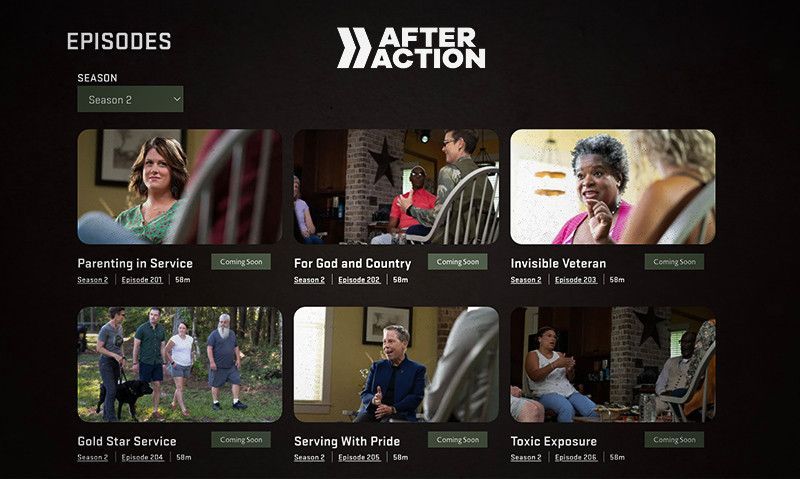
A deeper dive into core veterans issues
American Legion Tango Alpha Lima podcast co-host Stacy Pearsall’s “After Action” PBS series tackles critical issues to veterans in its second season, which is being released this month.
Pearsall, a retired Air Force veteran, lifetime American Legion member and multimedia journalist, creates and produces the video series for PBS. The second season of “After Action,” which kicked off May 1, is available here. The seventh and final episode will be published in June.
“While this is a veteran-centric series highlighting veteran and military community issues, the show is meant to inform all Americans — to help them get a better understanding of the military experience and to answer questions that people might feel uncomfortable asking,” she says.
For civilians, it also takes military jargon and translates it into commonly understood language, Pearsall explains.
“We try to take that language and break it down as best we can,” she says. “But the most important thing we do is to help people understand what that human experience is — from basic training and how that transformation happens and the lasting affect it has.”
Season One, which features seven episodes here, focused on the servicemember’s journey from basic training to TAPS.
The second season is a collection of seven stories that share different elements related to service. Topics include parenting, chaplaincy, women veterans, toxic exposure and Gold Star families.
“I am a member of the military community and there are still things I’m learning about every day,” she says. “Often, I’m learning them in real-time during the filming of the ‘After Action’ show. My hope is that my fellow Americans are as well – especially those who have an affiliation with a servicemember or veteran. For instance, the average nurse practitioner, caregiver, or physician can’t know everything a veteran may be carrying with them. It is so much more complex than we think. The ‘After Action’ show can help.”
Sharing these stories is not only a labor of love for Pearsall, but also a way that she faces her own journey with post-traumatic stress disorder.
“It’s healing; it’s cathartic, knowing that the responses I have are not abnormal,” she explains. “What we went through is such a unique experience. To find other people who have something similar in their background is rare.”
